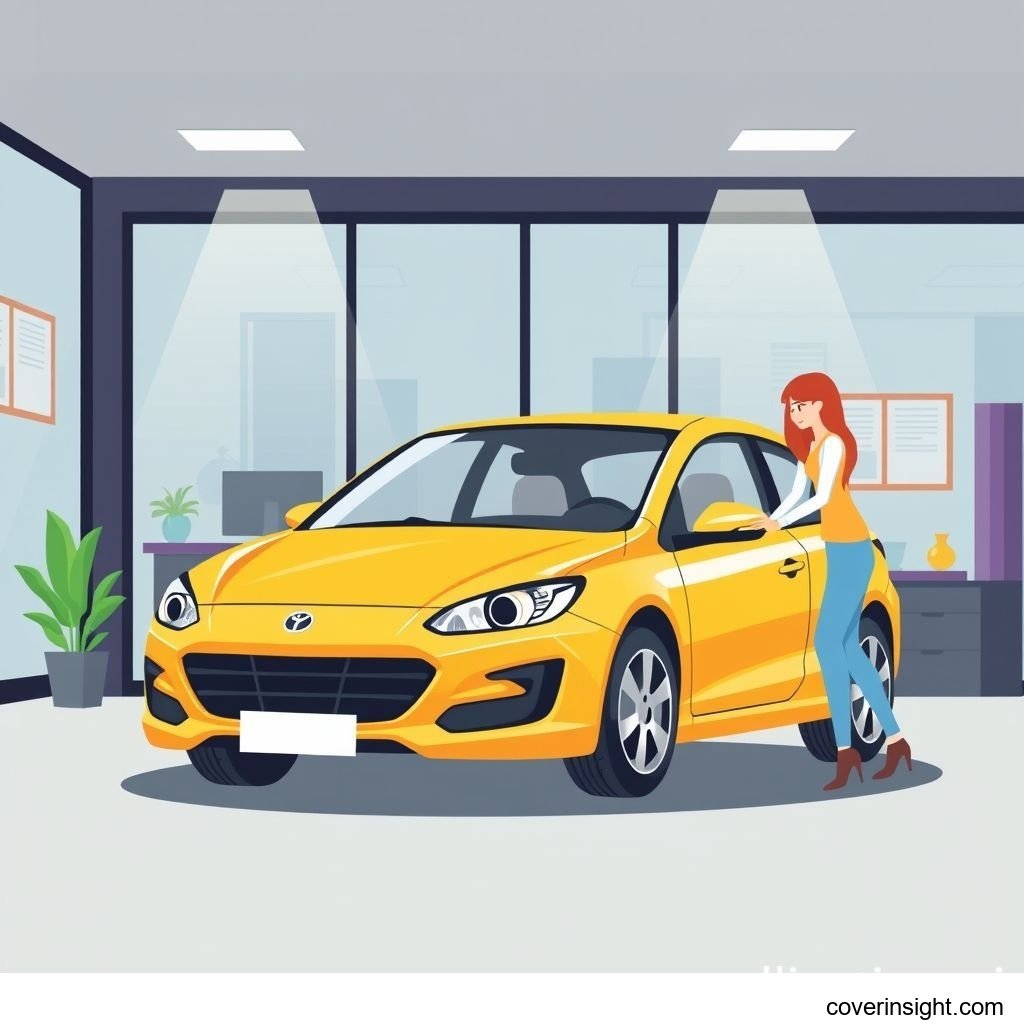Youi Car Insurance: Smart Aussie At-Fault Cover Guide 2025
Introduction
Navigating the complexities of car insurance in Australia can feel like a bit of a maze, especially when it comes to understanding what happens if you're deemed responsible for an accident. In 2025, having robust at-fault accident coverage is not just a nice-to-have; it's practically essential for financial peace of mind. For Aussie drivers, a comprehensive policy that includes at-fault coverage, like those offered by Youi, means you’re protected from the potentially crippling costs of repairing not just your own vehicle, but also the damage caused to other people's property. This guide will delve into Youi's offering, helping you make an informed decision for your wheels.
Coverage Details
Understanding what your policy covers and, crucially, what it doesn't, is paramount. Youi aims to provide straightforward options for Aussie motorists.
What’s Included
Youi’s comprehensive car insurance, which includes at-fault cover, generally steps in when you've been in an accident and are found to be at fault. This means they typically cover the cost of repairs to your vehicle (up to its market value or agreed value), as well as the damage you cause to other vehicles or property. Think of it this way: if you accidentally rear-end someone at the lights, Youi would usually cover the repairs for both your car and theirs, as well as any other property damaged in the collision, like a damaged fence or street light.
Furthermore, these policies often include extras like cover for theft or attempted theft, fire damage, storm damage (hail, floods, cyclones), and malicious damage. For instance, after the devastating floods that hit parts of Queensland and New South Wales in recent years, insurers like Youi played a crucial role in helping policyholders get back on their feet, covering the damage to vehicles submerged in floodwaters. According to the Insurance Council of Australia, general insurance claims from natural disasters reached over $7.4 billion in 2022, highlighting the critical role comprehensive cover plays.
Common Exclusions
While comprehensive cover is broad, it's not a magic bullet. There are common exclusions that policyholders should be aware of. These typically include:
-
Damage if the car is being driven by an unlicensed driver or someone under the influence of alcohol or drugs.
-
Wear and tear, rust, or pre-existing damage.
-
Damage caused by using the vehicle for purposes not covered by the policy (e.g., racing, ride-sharing if not declared).
-
Damage incurred while the car is unroadworthy.
-
Loss or damage due to dishonest acts by you or someone with your permission.
-
Failing to take reasonable precautions to prevent loss or damage (e.g., leaving keys in the ignition).
It's always a good idea to pore over the Product Disclosure Statement (PDS) to grasp the specifics. For more general guidance on protecting your assets, exploring diverse "Insurance Resources Global" can provide a broader perspective, while specific information about car insurance can be found on "AU Insurance Home".
Cost Analysis
Let's talk brass tacks – what will this peace of mind set you back?
Price Factors
The premium for your Youi comprehensive car insurance isn't just pulled out of a hat. Several factors influence the price you pay:
-
Your Driving History: A clean record with no claims or traffic infringements often leads to lower premiums.
-
Your Age and Gender: Younger, less experienced drivers generally pay more.
-
Your Location: Living in areas with higher theft rates or accident statistics can increase your premium. For example, a driver in a bustling urban centre like Melbourne might pay more than someone in a quiet regional town, simply due to higher traffic density and risk exposure.
-
Your Car's Make and Model: High-performance, luxury, or frequently stolen cars are more expensive to insure.
-
How You Use Your Car: Driving more kilometres annually, or using your car for business, can increase costs.
-
Your Excess: Choosing a higher excess (the amount you pay upfront when making a claim) typically lowers your premium.
-
Voluntary Excess: Youi, like many insurers, allows you to choose an additional voluntary excess to further reduce your premium.
-
No Claim Discount (NCD): A good NCD can significantly reduce your premium over time.
Saving Tips
There are several ways to potentially trim down your Youi premium without compromising on essential at-fault cover:
-
Increase Your Excess: As mentioned, opting for a higher excess will generally lower your annual premium. Just make sure it’s an amount you can comfortably afford if you need to make a claim.
-
Bundle Policies: Youi often offers discounts if you bundle multiple insurance policies (e.g., car and home insurance).
-
Limit Your Kilometres: If you don't drive much, Youi may offer a lower premium based on limited annual kilometres.
-
Maintain a Good Driving Record: Fewer claims and traffic infringements will lead to better no-claim discounts.
-
Choose a Safer Car: Researching insurance costs for different car models before purchasing can save you a fair dinkum amount.
-
Pay Annually: Sometimes, paying your premium annually rather than monthly can result in a small discount.
-
Review Your Policy Annually: Life changes, and so do insurance needs. Review your policy each year to ensure it still fits your circumstances and isn't costing you more than it needs to.
FAQs
How much does at-fault accident coverage cost? The cost varies significantly based on the factors listed above (your car, location, driving history, etc.). While there’s no single answer, Youi provides personalised quotes, so the best way to find out is to get a direct quote tailored to your specific circumstances.
What affects premiums? Premiums are affected by a wide array of factors including your age, driving record, where you live, the type of car you drive, your chosen excess, and even how many kilometres you drive annually.
Is it mandatory? No, comprehensive car insurance with at-fault cover is not mandatory in Australia. However, Compulsory Third Party (CTP) insurance, which covers injuries to other people in an accident you cause, is mandatory across all states and territories. While CTP covers personal injury, it does not cover damage to vehicles or property, highlighting the gap comprehensive cover fills.
How to choose? When choosing Youi's at-fault cover, consider your budget, your driving habits, the value of your vehicle, and your risk tolerance. Read the Product Disclosure Statement (PDS) carefully, compare the excess options, and ensure the policy's features align with your needs. Don’t be afraid to give their customer service a bell if you have questions.
Consequences of no coverage? If you're at fault in an accident and don't have comprehensive car insurance, you'll be personally responsible for all costs. This includes repairing your own car (if you choose to), and more significantly, paying for the damage to other vehicles and property involved. These costs can easily run into tens of thousands of dollars, potentially leading to severe financial strain or even bankruptcy. It’s a risk most Aussies would rather not take. For an overview of the regulatory landscape that protects consumers, the "Australian Prudential Regulation Authority" (APRA) oversees insurers, while the "Insurance Council of Australia" represents the general insurance industry, providing useful resources.
Author Insight & Experience
As someone who’s lived and driven across various parts of Australia, I’ve seen firsthand how unpredictable our roads can be – from dodging kangaroos in regional areas to navigating bustling city traffic. Based on my experience and countless conversations with fellow Aussies about their insurance woes, I've come to realise that while comprehensive at-fault cover might seem like an extra expense, it's truly an investment in peace of mind. There's nothing worse than that sinking feeling after an accidental bingle, only to realise you're on the hook for thousands. Youi, with its focus on personalised quotes, can often offer competitive rates, making robust protection more accessible. It's about being smart with your hard-earned cash, not just winging it and hoping for the best.








Comments